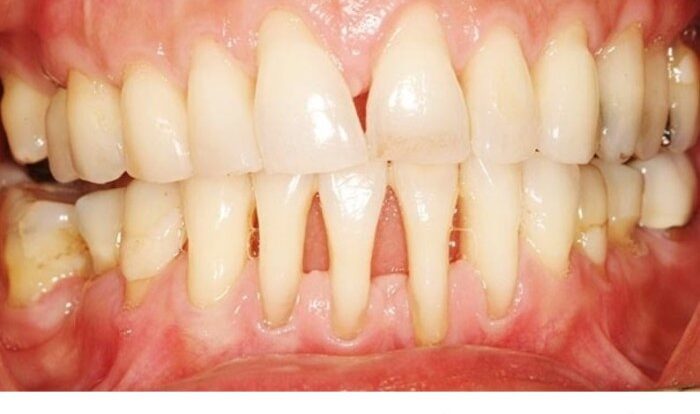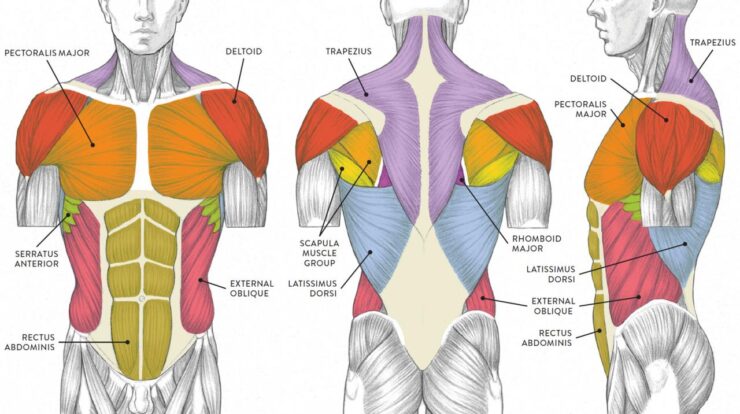
How to cure gum disease without a dentist? It’s a question that’s plagued many, and now, we’re here to provide you with the answers. From home remedies and natural treatments to alternative therapies and lifestyle changes, we’ll explore everything you need to know to get your gums back in tip-top shape.
Gum disease, also known as periodontal disease, is a common problem that affects millions of people worldwide. It’s caused by bacteria that build up on the teeth and gums, leading to inflammation, bleeding, and even tooth loss. While it’s always best to see a dentist for professional treatment, there are some things you can do at home to help prevent and cure gum disease.
Home Remedies and Natural Treatments
While it’s crucial to seek professional dental care for gum disease, there are home remedies and natural treatments that can provide additional support. These natural approaches can help reduce inflammation, fight bacteria, and promote gum health.
Looking for a way to cure gum disease without a dentist? Clark Mecconline offers a comprehensive guide to treating gum disease naturally, covering everything from home remedies to lifestyle changes. Whether you’re looking to prevent or cure gum disease, this guide has something for you.
Salt Water as a Natural Antiseptic
Salt water is a simple yet effective natural antiseptic that can help reduce inflammation and kill bacteria in the mouth. It’s easily accessible and can be used as a mouth rinse several times a day.
Recipe:Dissolve 1/2 teaspoon of salt in 8 ounces of warm water. Rinse your mouth with the solution for 30 seconds, then spit it out.
Gum disease is a serious condition that can lead to tooth loss and other health problems. While it’s best to see a dentist for treatment, there are some things you can do at home to help improve your gum health.
For more information on how to cure gum disease without a dentist, check out this helpful article: how to cure gum disease without a dentist . You’ll find tips on how to prevent and treat gum disease, as well as how to keep your mouth healthy.
Homemade Mouthwash with Essential Oils
Certain essential oils, such as tea tree oil and peppermint oil, have antibacterial and anti-inflammatory properties. You can create a homemade mouthwash by adding a few drops of these oils to a base of water or coconut oil.
Recipe:Mix 5-10 drops of tea tree oil and 5-10 drops of peppermint oil in 1 cup of warm water or coconut oil. Swish the mixture in your mouth for 30 seconds, then spit it out.
Tea Tree Oil as a Natural Antibacterial
Tea tree oil is a potent natural antibacterial agent that can help fight the bacteria that cause gum disease. It can be used as a mouth rinse or applied directly to the affected gums.
Recipe:Add 2-3 drops of tea tree oil to 1 cup of warm water. Rinse your mouth with the solution for 30 seconds, then spit it out. Alternatively, you can apply a few drops of tea tree oil directly to the affected gums using a cotton swab.
There are many ways to cure gum disease without a dentist. Click here to learn more about how to cure gum disease without a dentist . You can try using natural remedies, such as gargling with salt water or applying tea tree oil to your gums.
You can also try using over-the-counter treatments, such as mouthwashes or gels that contain fluoride or chlorhexidine. If these methods do not work, you may need to see a dentist for more aggressive treatment.
Alternative Therapies
Alternative therapies offer non-invasive approaches to reducing gum inflammation and promoting oral health.
Acupuncture, How to cure gum disease without a dentist
Acupuncture involves inserting thin needles into specific points on the body to stimulate the body’s natural healing response. Studies have shown that acupuncture can reduce gum inflammation and bleeding by regulating the immune system and improving blood circulation to the gums.
Oil Pulling
Oil pulling is an ancient Ayurvedic practice that involves swishing oil in the mouth for 10-15 minutes daily. The oil helps remove bacteria, toxins, and plaque from the teeth and gums. Coconut oil, sesame oil, or sunflower oil are commonly used for oil pulling.
Probiotics
Probiotics are beneficial bacteria that support a healthy microbiome in the mouth. Consuming probiotics in the form of supplements or fermented foods can help balance the oral microbiome, reducing harmful bacteria and promoting gum health.
Proper Oral Hygiene Practices

Maintaining a healthy oral hygiene routine is essential for preventing and curing gum disease. By following proper brushing, flossing, and tongue scraping techniques, you can effectively remove bacteria, plaque, and food particles from your teeth and gums, reducing the risk of gum inflammation and infection.
Brushing Techniques
- Use a soft-bristled toothbrush and fluoride toothpaste.
- Brush your teeth for at least two minutes, twice a day.
- Brush the outer surfaces of your teeth, the inner surfaces, and the chewing surfaces.
- Hold the toothbrush at a 45-degree angle to the gum line and gently brush in circular motions.
- Avoid brushing too hard, as this can damage your teeth and gums.
Flossing Techniques
- Use dental floss or a water flosser to remove plaque and bacteria from between your teeth.
- Floss your teeth at least once a day.
- Wrap the floss around your middle fingers and gently slide it between your teeth.
- Move the floss up and down along the sides of your teeth, being sure to reach below the gum line.
- Do not snap the floss, as this can damage your gums.
Tongue Scraping
- Use a tongue scraper to remove bacteria from your tongue.
- Scrape your tongue gently from the back to the front.
- Rinse your mouth with water after scraping your tongue.
Regular Dental Checkups
In addition to maintaining a proper oral hygiene routine, it is important to schedule regular dental checkups for early detection and treatment of gum disease. Your dentist can perform a thorough examination of your teeth and gums, identify any signs of gum disease, and recommend appropriate treatment options.
Lifestyle Changes
Maintaining a healthy lifestyle plays a crucial role in preventing and managing gum disease. Certain habits and dietary choices can significantly impact the health of your gums.
Smoking Cessation
Smoking is one of the most significant risk factors for gum disease. The chemicals in cigarettes damage the gum tissue, making it more susceptible to infection. Quitting smoking is the most effective way to improve your gum health and overall well-being.
Consider seeking support from a healthcare professional or joining a smoking cessation program to help you quit successfully.
Dietary Considerations
A healthy diet rich in fruits, vegetables, and whole grains provides essential nutrients that support gum health. Vitamin C, found in citrus fruits, is crucial for collagen production, a protein that strengthens the gum tissue. Calcium, present in dairy products, helps maintain strong bones and teeth.
If you’re struggling with gum disease and don’t have access to a dentist, there are some natural remedies you can try. You can learn more about how to cure gum disease without a dentist with home remedies by reading up on the topic.
There are many natural ways to improve your gum health and reduce inflammation.
Omega-3 fatty acids, abundant in fish and flaxseeds, have anti-inflammatory properties that benefit gum health.Beneficial Foods for Gum Tissue:
- Citrus fruits (oranges, grapefruits, lemons) for vitamin C
- Dairy products (milk, cheese, yogurt) for calcium
- Fish (salmon, tuna, mackerel) for omega-3 fatty acids
- Leafy greens (spinach, kale, collard greens) for vitamins A, C, and K
- Nuts and seeds (almonds, walnuts, chia seeds) for antioxidants and healthy fats
Herbal Remedies: How To Cure Gum Disease Without A Dentist

Herbal remedies have been used for centuries to treat gum disease due to their antibacterial, anti-inflammatory, and soothing properties. Let’s explore some effective herbal remedies and how they can be incorporated into your oral care routine.
Gum disease can be a serious issue, but it doesn’t have to be the end of the world. There are many things you can do to treat gum disease without a dentist, including brushing your teeth twice a day, flossing regularly, and using an antiseptic mouthwash.
If you’re looking for more information on how to cure gum disease without a dentist, be sure to check out this helpful guide . You can also try using a natural mouthwash, such as one made with tea tree oil or coconut oil.
With a little effort, you can get your gums back to health and keep them that way.
Cloves
Cloves possess potent antibacterial properties that can help combat the bacteria responsible for gum disease. You can use whole cloves by chewing on them for a few minutes, or you can prepare a clove-infused mouthwash by boiling a few cloves in water for 10 minutes.
Turmeric
Turmeric is a natural anti-inflammatory that can help reduce gum swelling and pain. You can apply a paste made from turmeric powder and water directly to the affected area, or you can add turmeric to your daily diet by incorporating it into curries, soups, and smoothies.
Herbal Tea Blend
A blend of herbs such as chamomile, peppermint, and sage can create a soothing tea that can help relieve gum pain and inflammation. Steep the herbs in hot water for 5-10 minutes, strain, and rinse your mouth with the tea several times a day.
Closure
Gum disease is a serious problem, but it’s one that can be prevented and cured with the right care. By following the tips in this article, you can help keep your gums healthy and your smile bright.
Key Questions Answered
Can I cure gum disease at home?
Yes, you can help prevent and cure gum disease at home by following the tips in this article. However, it’s always best to see a dentist for professional treatment.
What are the best natural remedies for gum disease?
Some of the best natural remedies for gum disease include salt water rinses, essential oil mouthwash, and tea tree oil.
What lifestyle changes can I make to improve my gum health?
Some lifestyle changes that can improve your gum health include quitting smoking, eating a healthy diet, and getting regular dental checkups.





